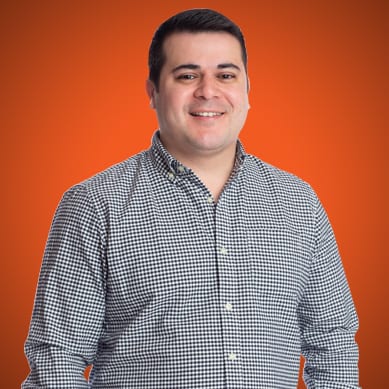Andrew Arriaga is a PhD student in counseling psychology at the University of Texas at Austin. He is a part of the Health Policy Research Scholars Cohort 2018.
Before we begin, tell us a little bit about yourself and what your research interests are.
I am currently a second year counseling psychology doctoral student at the University of Texas at Austin. My research broadly centers on health and wellness inequities of minority individuals, with a particular focus on help-seeking behaviors and health inequities among LGBTQ+ individuals of color.
What’s the story behind why you’re doing what you’re doing?
My passion for this area of study has long been influenced by my own life experiences growing up as a gay Latino in rural and traditional Texas Panhandle communities. Over the years, I both experienced and witnessed the various forms of discrimination and marginalization that adversely impact queer people, people of color, and those at the intersection of such identities. As an adult, my volunteer work with LGBTQ+ youth definitely solidified my desire to pursue a career in this area as a researcher, academic, and clinician.
Tell us about a project you are currently working on that you are excited about.
One new project that is currently exciting for me involves an analysis of states in which religious exemptions laws are enacted and may impact the ability of same-sex couples to adopt or foster children. The implications of these laws—which, generally speaking, allow an organization to refuse service to someone for any reason associated with its religious beliefs—are certainly complex and absolutely merit further investigation for the sake of the child welfare system and, on a broader level, social equity.
For people unfamiliar with your research area, what is one piece of information you think is important for them to know?
When talking about the myriad issues facing sexual and gender minority communities, it’s important to remember that one size does not fit all. People often refer to sexual or gender minority communities as monoliths, and—even worse—conflate sexual orientation and gender identity without giving real thought to what these constructs actually mean and how different they really are. While marginalization, discrimination, and violence have certainly impacted LGBTQ+ folks disproportionately compared to majority populations, it is important to remember that the individuals represented under the LGBTQ+ umbrella are extremely diverse in nature. Given this, the health and wellness of people within each of these communities are also differentially impacted by other identity factors, such race/ethnicity, ability, socioeconomic status, age, and so on. Thus, refined attention to the health and wellness issues uniquely facing specific subsets of the LGBTQ+ population is necessary when conducting, say, community outreach or advocacy work. Overall, it is imperative to be sensitive to the unique lived experiences of sexual- and gender-minority individuals by also being mindful of how one’s unique identity interacts with sociocultural, systemic, and psychological factors to inform these experiences.
Who is a researcher you admire and why?
I have a great admiration for Dr. Mark Hatzenbuehler. His work is especially motivating to me given my passion for health policy as it looks at the health of sexual- and gender-minority individuals from systemic and structural perspectives, which I believe has really strong implications for policy change and advocacy. I also love Dr. Derald Wing Sue’s work, which has been instrumental in regard to multicultural counseling competencies and examining racism and discrimination. He is also such a kind, humble man, which I find inspiring (and refreshing!) in such an esteemed academic.
How has being an HPRS Scholar helped you during your time as a doctoral candidate?
Being a scholar has afforded me so much undying support from other graduate researchers who, like me, regularly go through ups and downs in their academic, professional, and personal journeys as doctoral students. Even during this short period of time in the program, I have already been able to share many of my highs and lows in life with my amazingly supportive cohort, and I could not be more grateful for that. They are all such brilliant people, and having folks like this to really talk through the issues with—and who also feel as passionately as I do about them—is so inspiring. The HPRS staff has been such a steadfast source of support for all of us as well, which I know we can all attest to.
In the RWJF HPRS program we have worked with you to help you think further about using your research to develop policy. If you could use your research to change any policy, what policy would it be?
I would love to see my research support the implementation of federal policies that extend explicit rights protecting people from discrimination in housing, health care, employment, and adoption/foster care based on gender identity. These laws currently vary from state to state and have been murky (at best) at the federal level. So I say we need to explicitly extend those protections once and for all to all gender diverse individuals.
Ok, here’s a fun question to wrap things up. If you were stranded on a desert island, what three items would you want to have with you?
Music and writing are my life fuel, so I would definitely want my computer, solely because I could use it for both purposes. I’d also bring along my family (husband and two dogs—I’m counting that as one thing!) and my sleep mask.
Thank you so much for your time!
Thanks a ton!

